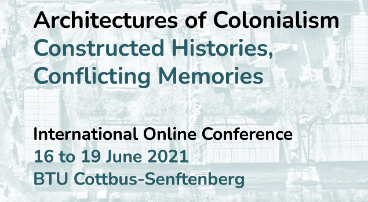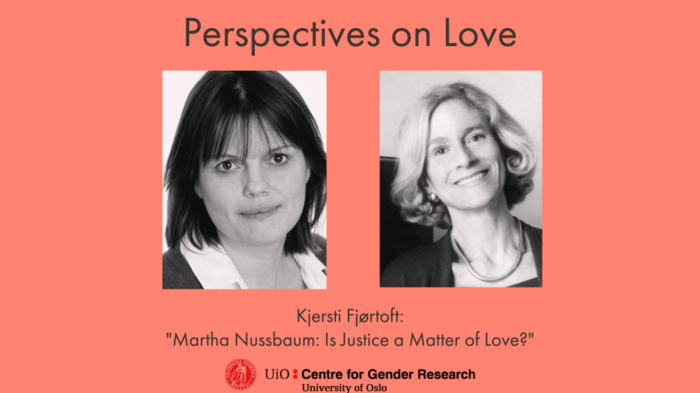Previous events - Page 28
NCMM Associate Investigator, Jacob Odeberg (MD and Professor Institute for Clinical Medicine, University of Troms? and University Hospital of North Norway) will give the talk: 'Plasma proteomics in COVID-19' as part of NCMM's Tuesday Seminar series.
NCMM Associate Investigators, Tero Aittokallio (Professor Institute for Cancer Research Oslo University Hospital and Oslo Centre for Biostatistics and Epidemiology UiO) and Victor Greiff (Ass. Professor Institute of Clinical Medicine, UiO), will present their research as part of NCMM's Tuesday Seminar series
Dr. Samuel Kelton Roberts, Jr., is visiting the Science Studies Colloquium Series. Roberts is Director of Columbia University’s Institute for Research in African American Studies (IRAAS), Associate Professor of History and Associate Professor of Sociomedical Sciences. He writes, teaches, and lectures widely on African-American history, medical and public health history, urban history, issues of policing and criminal justice, and the history of social movements.
The seminar is open for everyone!
Craig Callender is Professor of Philosophy and Founding Faculty and Co-Director of the Institute for Practical Ethics at the University of California, San Diego. He also sits on the Freedom and Responsibility in Science Committee of the International Science Council, Paris and the Faculty of The John Bell Institute, Hvar, Croatia. Before moving to San Diego, he worked in the Department of Philosophy, Logic & Scientific Method at the London School of Economics. He works in many areas of philosophy of science. His book What Makes Time Special? (Oxford University Press, 2017) won the 2018 Lakatos Award.
China both sends and hosts high numbers of international students. Is education a means to become cosmopolitan? How is China's place in the global educational landscape changing after Covid?
NCMM Associate Investigators, Emmet McCormack (Professor Department of Clinical Science, University of Bergen) & Eivind Valen (Ass. Professor Computational Biology Unit, Department of Informatics, University of Bergen), will present their research as part of NCMM's Tuesday Seminar series
On April 26, Kjersti Fj?rtoft (UiT) will give a presentation titled "Martha Nussbaum: Is Justice a Matter of Love?". This is the fifth event in our digital lecture series Perspectives on Love, in which we explore different understandings of the concept of love.
NCMM Associate Investigators, Yvonne B?ttcher (Professor Department of Clinical Molecular Biology, Akershus University Hospital and Institute of Clinical Medicine, UiO) & Cinzia Progida (Professor Section for Physiology and Cell Biology, Department of Biosciences, UiO), will present their research as part of NCMM's Tuesday Seminar series.
On April 19, Monica Roland (OsloMet) will give a presentation titled "Love as Seeing: Iris Murdoch and David Velleman on the Nature of Love and Loving". This is the fourth event in our digital lecture series Perspectives on Love, in which we explore different understandings of the concept of love.
On April 12, guest researcher at STK Kaja Jenssen Rathe will give a presentation titled "Between Erotic Perception and Lived Openness: Merleau-Ponty’s Perspective". This is the third event in our digital lecture series Perspectives on Love, in which we explore different understandings of the concept of love.
The growth of the Greater Bay Area in South China is still heavily reliant on the access to cheap labor. This seminar examines the role of labor brokers in shaping rural-urban labor migration in China.
In Performing Indigenous Health Research in a Multiethnic Landscape: The Population-based Study on Health and Living in Regions with Sami and Norwegian Populations - the SAMINOR Study Ann Ragnhild Broderstad, head of SAMINOR, will be discussing the upcoming third SAMINOR survey, in the broader context of how the modern history of indigenous groups has created both distinct needs for focused health-research and distinct considerations in such research. Prof. Broderstad is academic director of the Centre for Sami Health Research at UiT the Arctic University of Norway, in addition to her role with the Department of Medicine, University Hospital of North Norway.
NCMM Associate Investigators, June Myklebust (Associate Professor, Institute for Cancer Research, Oslo University Hospital and Institute for Clinical Medcine, UiO) and Joel Glover (Professor Institute of Basic Medical Sciences, UiO) will present their research as part of NCMM's Tuesday Seminar series.
On March 22nd, guest researcher at STK Helgard Mahrdt will give a presentation titled "Hannah Arendt on Love, Friendship, and Politics". This is the second event in our digital lecture series Perspectives on Love, in which we explore different understandings of the concept of love.
Liliana Doganova is finally (digitally) visiting the Science Studies Colloquium Series, after her scheduled visit last year had to be postponed. Doganova teaches at Ecole des Mines and PSL. Her research lies at the intersection of economic sociology and STS (Science and Technology Studies), and explores market construction processes and valuation devices. She is currently preparing a monograph on the historical sociology of discounting.
The seminar is open for everyone!
NCMM Associate Investigators, Gunnveig Gr?deland (Institute of Clinical Medicine, UiO and Oslo University Hospital) and Marc Vaudel (Department of Clinical Science, University of Bergen), will present their research as part of NCMM's Tuesday Seminar series
This year's International Women's Day seminar at the University of Oslo will explore gendered and intersecting consequences of COVID-19, with particular emphasis on work and migration. Invited speakers, including Professor Beverley Skeggs, will consider the ways in which the pandemic has revealed and reinforced existing inequalities, both in Norway and globally.










.png?alt=listing)
.png?alt=listing)





